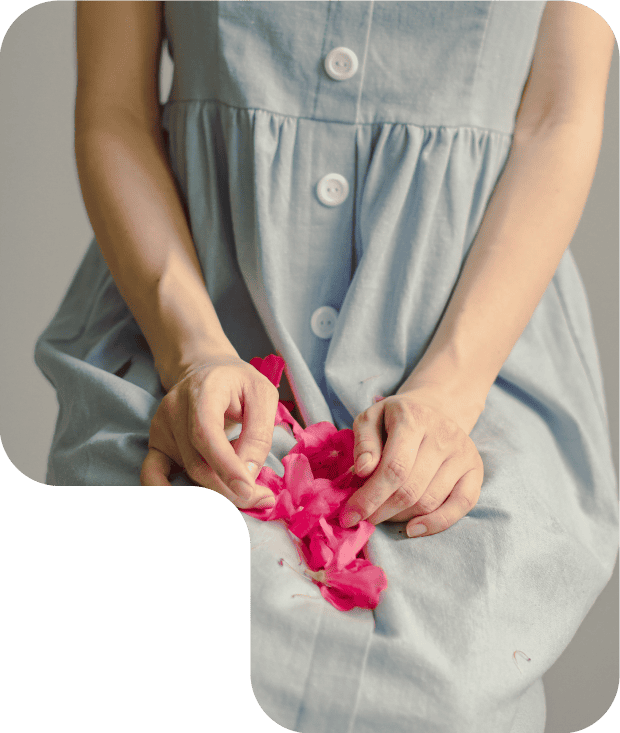
Unlock a More Youthful You With Hormone Replacemment Therapy In Victory Gardens, NJ
Aging is inevitable, and for many, it signals the beginning of a new chapter - one where you cross off bucket list items and live life to the fullest, on your own terms. However, for some women, aging is a horrible prospect, filled with chronic fatigue, irritability, and inability to perform in the bedroom. If you're concerned about life in middle age and beyond, we've got great news: there are easy, proven steps that you can take to help stop the negative effect of aging.
Global Life Rejuvenation was founded to give women a new lease on life - one that includes less body fat, fewer mood swings, and more energy as you age. If you're ready to look and feel younger, it's time to consider HRT (hormone replacement therapy), and growth hormone peptides. These therapies for men and women are effective, safe, and customized to fit your goals, so you can keep loving life as you get older.
HRT, and growth hormone peptide therapies bridge the gap between your old life and the more vibrant, happier version of you. With a simple click or call, you can be well on your way to a brighter future. After all, you deserve to be the one in charge of your wellness and health. Now, you have the tools to do so - backed by science and applied by our team of HRT experts with more than 13 years of experience.

Hormone replacement therapy
- Unlock A More Youthful You With Testosterone Replacement Therapy In Victory Gardens, NJ
- TRT and Anti-Aging Medicine for Men
- Common Symptoms of Low Testosterone
- Benefits of TRT and Anti-Aging Medicine for Men
- Fight Back Against Male Menopause
- Reverse Aging with Growth Hormone Peptides in Victory Gardens, NJ
- Your New, Youthful Lease on Life Starts Here
 Have A Question?
866-793-9933
Have A Question?
866-793-9933
What is HRT?
As women age, their hormones begin to go through changes that affect their day-to-day lives. For women, hormone deficiency and imbalance usually occur during menopause and can cause chronic fatigue, hot flashes, and mood swings, among other issues. Hormone replacement therapy helps correct hormone imbalances in women, helping them feel more vibrant and virile as they age.
Often, HRT treatments give patients enhanced quality of life that they didn't think was possible - even in their 60's and beyond. The benefits for women are numerous and are available today through Global Life Rejuvenation.

HRT and Anti-Aging Medicine for Women in Glenn Ridge, NJ
As women age, their bodies begin to go through significant changes that affect their quality of life. This change is called menopause and marks the end of a woman's menstrual cycle and reproduction ability. Though there is no specific age when this change occurs, the average age of menopause onset is 51 years old. However, according to doctors, menopause officially starts 12 months after a woman's final period. During the transition to menopause, women's estrogen and other hormones begin to deplete.
As that happens, many women experience severe symptoms. These symptoms include:
- Hot Flashes
- Chronic Fatigue
- Incontinence
- Trouble Sleeping
- Dryness
- Muscle Loss
- Fat Gain
- Mood Swings
The symptoms of hormone deficiency can be concerning and scary for both women and their spouses. However, if you're getting older and notice some of these symptoms, there is reason to be hopeful. Hormone replacement therapy and anti-aging medicine for women can correct imbalances that happen during menopause. These safe, effective treatments leave you feeling younger, healthier, and more vibrant.
What Causes Menopause?
The most common reason for menopause is the natural decline in a female's reproductive hormones. However, menopause can also result from the following situations:
Oophorectomy
This surgery, which removes a woman's ovaries, causes immediate menopause. Symptoms and signs of menopause in this situation can be severe, as the hormonal changes happen abruptly.
Chemotherapy
Cancer treatments like chemotherapy can induce menopause quickly, causing symptoms to appear shortly after or even during treatment.
Ovarian Insufficiency
Also called premature ovarian failure, this condition is essentially premature menopause. It happens when a woman's ovaries quit functioning before the age of 40 and can stem from genetic factors and disease. Only 1% of women suffer from premature menopause, but HRT can help protect the heart, brain, and bones.
Common Issues for Women During Menopause
For many women, menopause is a trying time that can be filled with many hormonal hurdles to jump through. A little knowledge can go a long way, whether you're going through menopause now or are approaching "that" age.
Here are some of the most common issues that women experience during menopause:
Depression
If you're a woman going through menopause and find that you have become increasingly depressed, you're not alone. It's estimated that 15% of women experience depression to some degree while going through menopause. What many women don't know is that depression can start during perimenopause, or the years leading up to menopause.
Depression can be hard to diagnose, especially during perimenopause and menopause. However, if you notice the following signs, it might be time to speak with a physician:
- Mood Swings
- Inappropriate Guilt
- Chronic Fatigue
- Too Much or Too Little Sleep
- Lack of Interest in Life
- Overwhelming Feelings
Remember, if you're experiencing depression, you're not weak or broken - you're going through a very regular emotional experience. The good news is that with proper treatment from your doctor, depression isn't a death sentence. And with HRT and anti-aging treatment for women, depression could be the catalyst you need to enjoy a new lease on life.

Hot Flashes
Hot flashes - they're one of the most well-known symptoms of menopause. Hot flashes are intense, sudden feelings of heat across a woman's upper body. Some last second, while others last minutes, making them incredibly inconvenient and uncomfortable for most women.
Symptoms of hot flashes include:
- Sudden, Overwhelming Feeling of Heat
- Anxiety
- High Heart Rate
- Headache
- Nausea
- Dizziness
Typically, hot flashes are caused by a lack of estrogen. Low estrogen levels negatively affect a woman's hypothalamus, the part of the brain that controls body temperature and appetite. Low estrogen levels cause the hypothalamus to incorrectly assume the body is too hot, dilating blood vessels to increase blood flow. Luckily, most women don't have to settle for the uncomfortable feelings that hot flashes cause. HRT treatments for women often stabilize hormones, lessening the effects of hot flashes and menopause in general.

Mood Swings
Mood swings are common occurrences for most people - quick shifts from happy to angry and back again, triggered by a specific event. And while many people experience mood swings, they are particularly common for women going through menopause. That's because, during menopause, the female's hormones are often imbalanced. Hormone imbalances and mood swings go hand-in-hand, resulting in frequent mood changes and even symptoms like insomnia.
The rate of production of estrogen, a hormone that fluctuates during menopause, largely determines the rate of production the hormone serotonin, which regulates mood, causing mood swings.
Luckily, HRT and anti-aging treatments in Glenn Ridge, NJ for women work wonders for mood swings by regulating hormone levels like estrogen. With normal hormone levels, women around the world are now learning that they don't have to settle for mood swings during menopause.

Weight Gain
Staying fit and healthy is hard for anyone living in modern America. However, for women with hormone imbalances during perimenopause or menopause, weight gain is even more serious. Luckily, HRT treatments for women coupled with a physician-led diet can help keep weight in check. But which hormones need to be regulated?
- Estrogen
- Progesterone
- Ongoing Stress
During menopause, estrogen levels are depleted. As such, the body must search for other sources of estrogen. Because estrogen is stored in fat, your body believes it should increase fat production during menopause. Estrogen also plays a big part in insulin resistance, which can make it even harder to lose weight and keep it off.
Progesterone levels are also depleted during menopause. Progesterone depletion causes bloating and water retention, while loss of testosterone limits the body's ability to burn calories.
Stress makes our bodies think that food is hard to come by, putting our bodies in "survival mode". When this happens, cortisol production is altered. When cortisol timing changes, the energy in the bloodstream is diverted toward making fat. With chronic stress, this process repeatedly happens, causing extensive weight gain during menopause.

Low Libido
Lowered sexual desire
three words most men and women hate to hear. Unfortunately, for many women in perimenopausal and menopausal states, it's just a reality of life. Thankfully, today, HRT and anti-aging treatments Glenn Ridge, NJ can help women maintain a normal, healthy sex drive. But what causes low libido in women, especially as they get older?
The hormones responsible for low libido in women are progesterone, estrogen, and testosterone.
Progesterone production decreases during perimenopause, causing low sex drive in women. Lower progesterone production can also cause chronic fatigue, weight gain, and other symptoms. On the other hand, lower estrogen levels during menopause lead to vaginal dryness and even vaginal atrophy or loss of muscle tension.
Lastly, testosterone plays a role in lowered libido. And while testosterone is often grouped as a male hormone, it contributes to important health and regulatory functionality in women. A woman's testosterone serves to heighten sexual responses and enhances orgasms. When the ovaries are unable to produce sufficient levels of testosterone, it often results in a lowered sex drive.

Vaginal Dryness
Often uncomfortable and even painful, vaginal dryness is a serious problem for sexually active women. However, like hair loss in males, vaginal dryness is very common - almost 50% of women suffer from it during menopause.
Getting older is just a part of life, but that doesn't mean you have to settle for the side effects. HRT and anti-aging treatments for women correct vaginal dryness by re-balancing estrogen, progesterone, and testosterone. When supplemented with diet and healthy living, your vagina's secretions are normalized, causing discomfort to recede.

Fibroids
Uterine fibroids
They're perhaps the least-known symptom of menopause and hormone imbalances in women. That's because these growths on the uterus are often symptom-free. Unfortunately, these growths can be cancerous, presenting a danger for women as they age.
Many women will have fibroids at some point. Because they're symptomless, they're usually found during routine doctor exams. Some women only get one or two, while others may have large clusters of fibroids. Because fibroids are usually caused by hormone imbalances, hysterectomies have been used as a solution, forcing women into early menopause.
Advances in HRT and anti-aging medicine for women give females a safer, non-surgical option without having to experience menopause early. At Global Life Rejuvenation, our expert physicians will implement a customized HRT program to stabilize your hormones and reduce the risk of cancerous fibroid growth.

Endometriosis
Endometriosis symptoms are much like the effects of PMS, and include pelvic pain, fatigue, cramping, and bloating. While doctors aren't entirely sure what causes this painful, uncomfortable condition, most agree that hormones - particularly xenoestrogens - play a factor.
Endometriosis symptoms are much like the effects of PMS and include pelvic pain, fatigue, cramping, and bloating. While doctors aren't entirely sure what causes this painful, uncomfortable condition, most agree that hormones - particularly xenoestrogens - play a factor.
Xenoestrogen is a hormone that is very similar to estrogen. Too much xenoestrogen is thought to stimulate endometrial tissue growth. HRT for women helps balance these hormones and, when used with a custom nutrition program, can provide relief for women across the U.S.


Is HRT for Women the Right Answer?
Hormone stability is imperative for a healthy sex drive and for a normal, stress-free life during menopause. HRT and anti-aging treatments for women balance the hormones that your body has altered due to perimenopause or menopause.
HRT for women is a revolutionary step in helping women live their best lives, even as they grow older. However, at Global Life Rejuvenation, we know that no two patients are the same. That's why we specialize in holistic treatments that utilize HRT, combined with healthy nutrition, supplements, and fitness plans that maximize hormone replacement treatments.
If you've been suffering through menopause, is HRT the answer? That's hard to say without an examination by a trusted physician, but one thing's for sure. When a woman balances her hormone levels, she has a much better shot at living a regular life with limited depression, weight gain, mood swings, and hot flashes.
Here are just a few additional benefits of HRT and anti-aging treatments for females:
Benefits of HRT and Anti-Aging Medicine for Women in Glenn Ridge, NJ
Hormone imbalance causes a litany of issues. But with anti-aging treatments for women, females can better process calcium, keep their cholesterol levels safe, and maintain a healthy vagina. By replenishing the body's estrogen supply, HRT can relieve symptoms from menopause and protect against osteoporosis. But that's just the start.
Global Life Rejuvenation's patients report many more benefits of HRT and anti-aging medicine for women:
- Fewer Mood Swings
- Thicker Hair
- Stronger Bones
- Less Body Fat
- More Energy
- More Stamina
- Increased Sex Drive and Pleasure Sensations
- Better Cognitive Functions
- Improved Pain Receptors
- Less Hot Flashes and Night Sweats
- Lower Triglycerides
- Fewer Bladder Infections
If you're ready to feel better, look better, and recapture the vitality of your youth, it's time to contact Global Life Rejuvenation. It all starts with an in-depth consultation, where we will determine if HRT and anti-aging treatments for women are right for you. After all, every patient's body and hormone levels are different. Since all our treatment options are personalized, we do not have a single threshold for treatment. Instead, we look at our patient's hormone levels and analyze them on a case-by-case basis.


HRT from Global Life Rejuvenation
At Global Life Rejuvenation, we help women rediscover their youth with HRT treatment for women. We like to think of ourselves as an anti-aging concierge service, guiding and connecting our patients to the most qualified HRT physicians available. With customized HRT treatment plan for women, our patients experience fewer menopausal symptoms, less perimenopause & menopause depression, and often enjoy a more youth-like appearance.
Reverse Aging with Growth Hormone Peptides
Growth hormone peptides are an innovative therapy that boosts the natural human growth hormone production in a person's body. These exciting treatment options help slow down the aging process and give you a chance at restoring your youth.
Sermorelin is a synthetic hormone peptide, like GHRH, which triggers the release of growth hormones. When used under the care of a qualified physician, Sermorelin can help you lose weight, increase your energy levels, and help you feel much younger.
Human growth hormone (HGH) therapy has been used for years to treat hormone deficiencies. Unlike HGH, which directly replaces declining human growth hormone levels, Sermorelin addresses the underlying cause of decreased HGH, stimulating the pituitary gland naturally. This approach keeps the mechanisms of growth hormone production active.
Benefits of Sermorelin include:
- Better Immune Function
- Improved Physical Performance
- More Growth Hormone Production
- Less Body Fat
- Build More Lean Muscle
- Better Sleep
Ipamorelin helps to release growth hormones in a person's body by mimicking a peptide called ghrelin. Ghrelin is one of three hormones which work together to regulate the growth hormone levels released by the pituitary gland. Because Ipamorelin stimulates the body to produce growth hormone, your body won't stop its natural growth hormone production, which occurs with synthetic HGH.
Ipamorelin causes growth hormone secretion that resembles natural release patterns rather than being constantly elevated from HGH. Because ipamorelin stimulates the natural production of growth hormone, our patients can use this treatment long-term with fewer health risks.
One of the biggest benefits of Ipamorelin is that it provides significant short and long-term benefits in age management therapies. Ipamorelin can boost a patient's overall health, wellbeing, and outlook on life.
When there is an increased concentration of growth hormone by the pituitary gland, there are positive benefits to the body. Some benefits include:
- Powerful Anti-Aging Properties
- More Muscle Mass
- Less Unsightly Body Fat
- Deep, Restful Sleep
- Increased Athletic Performance
- More Energy
- Less Recovery Time for Training Sessions and Injuries
- Enhanced Overall Wellness and Health
- No Significant Increase in Cortisol
Your New, Youthful Lease on Life Starts Here
Whether you are considering our TRT services, HRT for women, or our growth hormone peptide services, we are here to help. The first step to turning back the hand of time starts by contacting Global Life Rejuvenation.
Our friendly, knowledgeable TRT and HRT experts can help answer your questions and walk you through our procedures. From there, we'll figure out which treatments are right for you. Before you know it, you'll be well on your way to looking and feeling better than you have in years!
Request a Consultation

Latest News in Victory Gardens, NJ
10 Cheapest Towns in Morris County, NJ
Suburbs 101 Teamhttps://suburbs101.com/cheapest-towns-in-morris-county-nj/
Are you looking to move to Morris County in New Jersey? Trying to find affordable towns to live in Morris County, NJ?Buying a house in North Jersey doesn’t have to be expensive, there are several budget-friendly towns in Morris County. These Morris County towns offer affordable living in Northern New Jersey without breaking the bank!Below we have a list of the 10 cheapest towns in Morris County, NJ.The median sale price d...
Are you looking to move to Morris County in New Jersey? Trying to find affordable towns to live in Morris County, NJ?
Buying a house in North Jersey doesn’t have to be expensive, there are several budget-friendly towns in Morris County. These Morris County towns offer affordable living in Northern New Jersey without breaking the bank!
Below we have a list of the 10 cheapest towns in Morris County, NJ.
The median sale price data was sourced from Redfin for home sales from March 2022-March 2023.
Check out: Cheapest Towns in Bergen County, NJ
What is the Most Affordable Town in Morris County, NJ?
Victory Gardens, NJ is the most affordable town in Morris County. It’s a small NJ municipality with a population of just over 1500 residents. Victory Gardens has a median sale price of $244,000.
Riverdale, NJ came in second with a median sale price of $354,000 while Netcong, NJ ranked third on the list with a median sale price of $359,000.
And Dover, NJ came in as the 4th most affordable town in Morris County with a median sale price of $382,000.
All of these Morris County towns are great budget-friendly options if you are looking for affordable towns in North Jersey!
Check out: New Jersey Towns Where Homes are Selling Fast
Cheapest Towns in Morris County, NJ
Below is a list of the most affordable towns in Morris County.
Median Sale Price: $244K
Median Sale Price: $354K
Median Sale Price: $359K
Median Sale Price: $382K
Median Sale Price: $402K
Check out our list of the Cheapest towns in North Jersey
Median Sale Price: $403K
Median Sale Price: $416K
Median Sale Price: $421K
Median Sale Price: $435K
Median Sale Price: $555K
Check out New Jersey Towns with the Highest Real Estate Taxes and Lowest Real Estate Taxes
Median Sale Price: $569K
Median Sale Price: $575K
Median Sale Price: $633K
Median Sale Price: $663K
Median Sale Price: $684K
Buy our E-Book: House Hunting Like a Pro
Looking for the perfect home in the New York suburbs can be overwhelming, but don’t worry! With Househunting like a Pro, you can avoid the costly mistake of buying the wrong house!
Written by a real estate professional and local suburbanite, this easy to read E-Book provides valuable advice on how to choose the right towns and find the perfect home.
Plus, with our House Hunting Checklist and Town by Town Tracker printables, you’ll be armed with the tools you need to navigate the home buying process like a pro. Don’t miss out on this opportunity to make your house hunting journey a success – download Househunting like a Pro today!
You May Also Be Interested In:
Where do Billionaires Live in New Jersey?
What are the Highest Paying Jobs in New Jersey? (Infographics)
Wealthiest Towns in New Jersey
14 Jobs that Pay over 100K a year without a Degree in New Jersey (video)
Cheapest Towns in Bergen County NJ
Most Affordable Towns in Northern NJ
Best New Jersey Suburbs to Live in
Cheapest Towns in Morris County, NJ
New Jersey Towns with the Highest Property Tax Rates
Want More Suburbs 101?
Be sure to Follow Us on Instagram, Like Us on Facebook, Subscribe to our YouTube Channel, and subscribe to our Weekly Newsletter.
Sharing is caring!
Disclaimer:

Service Areas

 WITH OVER 13 YEARS OF EXPERIENCE
WITH OVER 13 YEARS OF EXPERIENCE
